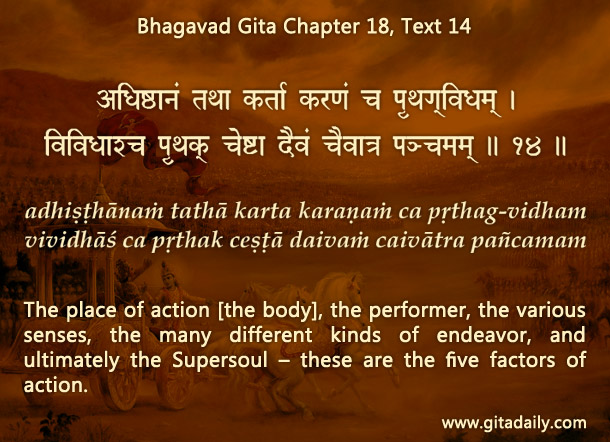The word fate connotes a trans-human shaper of results (Why is fate against me?) as well as the future that will result (Who knows what fate awaits a ship in the high seas?).
Some people say, “I don’t believe in fate. I make my own destiny.” Such statements can empower provided they inspire us to do our best, to change the things that are in our control. But those statements can disempower if they make us agonize over results that are not in our control. Even a little experience of life forces us to acknowledge that our efforts alone don’t determine the results; factors beyond our control play a vital role too. The cumulative of such factors is called fate. Its existence is a fact, not a matter of faith.
The Bhagavad-gita (18.14) lists five factors that determine the results of actions: body, soul, senses, endeavor and destiny. Thus, the Gita realistically acknowledges the roles of both endeavor and fate.
Significantly, Gita wisdom declares God to be the ultimate controller of everything, including even fate. Studying and living the Gita infuses us with the faith that God is in control and that he is benevolent. Boosted by this faith, we can persevere through adversities, knowing that he can bring good even out of the bad. Thus, our faith empowers us to press on when discouragement would otherwise stall us.
When we are resilient and perseverant, we do fully the part that is in our hands for contributing to our success. Even if the result doesn’t work out, still our doing our best helps us evolve. We grow in our discipline, commitment and character, thereby preparing ourselves for a brighter future.
Thus, our faith plays a vital role in shaping our fate, our destiny, our future.
To know more about this verse, please click on the image
Explanation of article:
Podcast:
Download by “right-click and save”


Nice Article……